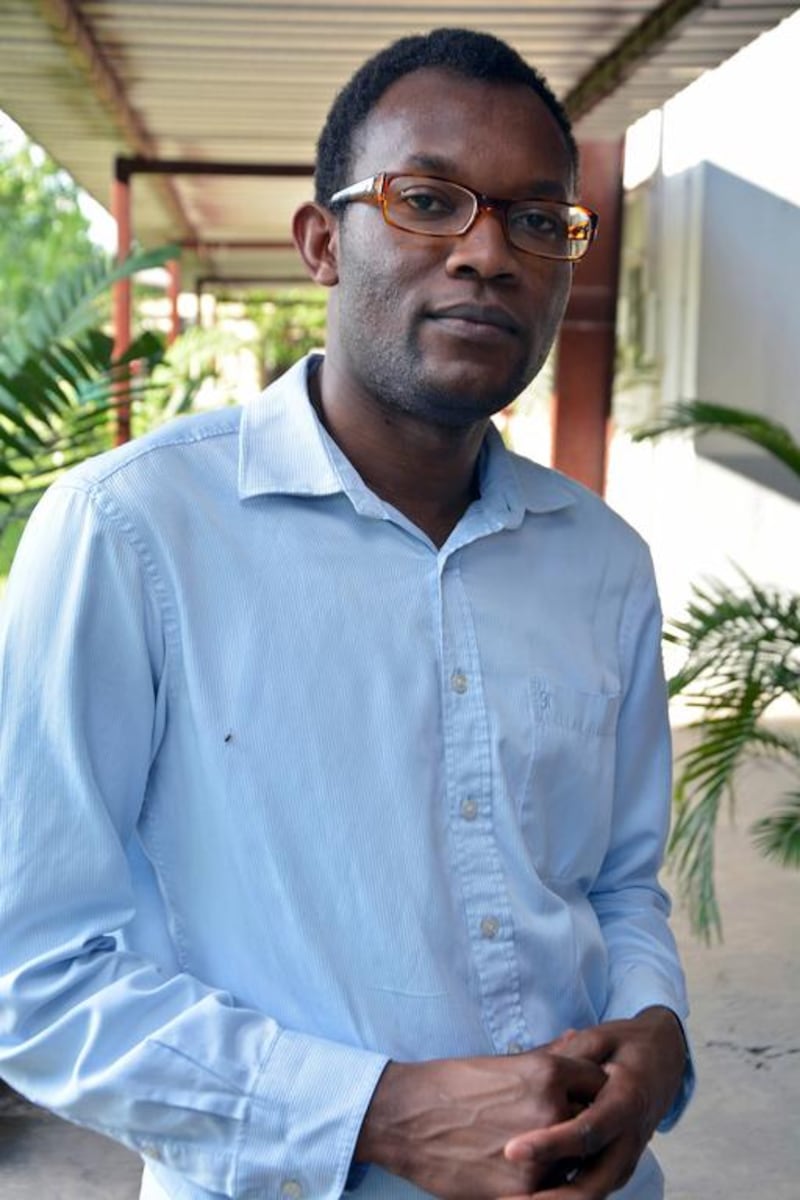If it wasn't necessary to hold a book steady while reading, Tram 83 would be a text for dancing.
This singing, stinging, genre-slinging debut novel by Congolese poet and playwright Fiston Mwanza Mujila, is on the longlist for the 2016 Man Booker International alongside work by Nobel Prize winners Orhan Pamuk and Kenzaburo Oe. Last month, it won the pan-African Etisalat Prize for Literature.
The novel is remarkable in its freshness. If much of contemporary western literature aspires toward the sharp, focused imagery that evokes film, then Tram 83 is a novel of the stage. Yet we are not seated in the audience's red-velvet chairs. We're thrown right into the titular bar, Tram 83, with performers moving all around us: the clamour of other patrons, music from up on stage, conversations erupting and interrupting from nearby tables.
Mujila’s novel-song is relentlessly polyphonic, using not just the rhythms of rumba, salsa and jazz but also European classical music (a particular favourite at the city jail), rock and all manner of fusion. Conversations and conversation-fragments are layered one on top of the next. This is a text that exists simultaneously for the eye and the ear, or where the eye becomes the ear.
The forward action – because Tram 83 is also a novel – centres on two friends, or enemies, or twins separated at university. These are Lucien, our noble playwright, and Requiem, our not-very-noble crime boss, soldier and entrepreneur. Both are ribbed by the narrator. But, refreshingly, this isn't black comedy: although terrible things happen, the laughter comes with a remarkably light touch.
The book begins when Lucien arrives in an unnamed Congolese mining town called “City-State” from the “Back-Country”, a place where he spent many years struggling to write and being punished for his writing. Once at the station, he is met by his frenemy Requiem, also called the Negus, also Gold Mine, also Fancy Footwork, also The Most Impresario Yankee, among dozens of other names. Lucien moves in with Requiem, who both supports and blocks his work, and who can’t help but compete with his old college friend.
Lucien’s struggles to remain true to his ideals veer towards quixotic, windmill-tilting absurdity, such as when he refuses to bribe his way out of prison. But he’s also sweet and charming. Meanwhile, his best enemy Requiem deals in ever-increasing amounts of money and trouble, chiefly by raiding the city’s diamond mine. In that way, Requiem can take revenge on all who have wronged him. Just as Lucien is apparently chaste and monk-like, Requiem is endlessly hungry. At one point, Requiem claims to owe a Greek shipowner $5,765,000.
At the centre of this whirlwind, Lucien is trying to publish a short play while being hounded by every possible difficulty: sabotage by Requiem, scorn from the patrons of Tram 83, arrest, excessive attentions from women, Requiem’s insistence that Lucien help raid the diamond mines, rival gang members lighting his journal on fire and smoking the pages and a friend in Paris who calls to demand new writing. The chorus’s repetitions continually block Lucien’s way forward, particularly the incessant: “Do you have the time?”
Lucien’s Swiss publisher, whom he meets in Tram 83, is also a wonderful, risible mess. He’s a “for-profit tourist” and a long-time enemy of Requiem’s. The publisher is full of contradictory revision advice, including this non sequitur: “Listen, Lucien, if you’ve got a bit of time to spare, produce a collection of poems on Mauritania, too.”
No one is spared the spotlight of ridicule, especially the tourists – both of the “for profit” and “nonprofit” variety. There is an American organisation, “Save The Dogs in Africa” that gathers statistics on the consumption of dog meat. And just as francophone publishers hound Lucien for texts, they also turn up their noses: “Africa is of no interest to many intellectuals; let’s just say it’s not as exotic as it was four hundred years ago.”
The translation from French by Roland Glasser is a feat. It manages to keep the rhythm of Mujila's musicality, his towering Shidyaqian lists and his poetic sense of timing. It would be surprising if a debut like Tram 83 took the Booker ahead of works by Pamuk, Oe and Elena Ferrante. But it would also be a delight.
M Lynx Qualey is a freelance writer based in Cairo who blogs at arablit.wordpress.com.





